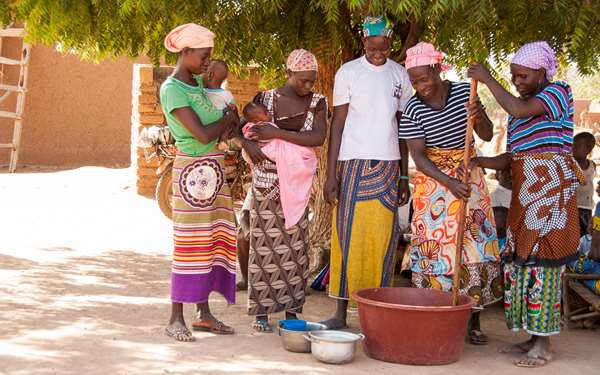
Strengthening forest management
Supporting communities in Mali to use and protect their local forests.Why was this project needed?
Over the last three decades, nearly two million hectares of forest have been lost from Mali, mostly to make space for farmland — this is known as deforestation. In the Ségou region of Mali, the Duwa and Sutebwo forests have been hard hit by deforestation and the effects of the climate crisis.
With rainfall becoming more unpredictable, and soil losing its fertility, people are struggling to grow trees and crops — something which they depend on for food and income. As a result, over half the population of Mali live in poverty.


Our aims
This project aimed to protect and restore Ségou’s forests, while tackling poverty in the region. We set out to work with local authorities to agree rules for using forests that benefit local people. The project also aimed to train communities to protect and restore their local forests.
Addressing poverty in the region, the project aimed to support people with tools and training to form and develop enterprise groups. With support to process and market tree products like shea butter, the project aimed to increase household incomes.

Our impact
The project came to an end in 2020 with some impressive results. We trained nearly 1,500 farmers in land and forest management techniques, like tree planting and regeneration and soil and water conservation. In Sutebwo forest, tree cover has doubled since farmers have started putting tree regeneration techniques into practice.
We worked with local authorities to promote the rights of local people in managing and using forests. As a result, 75% of the people we worked with now feel they have fair and equal access to their local forests.


More results
We supported shea and honey enterprise groups with processing equipment and financial training. As a result, 905 households were lifted above the poverty line. The people we worked with increased their income by an amazing 270% on average.
With the extra income, they can now save and invest money, providing stability for the future. They can also afford more nutritious foods, demonstrated by an increase in dietary diversity of people supported through the project.
Our partners
This project was made possible with funding from The Darwin Initiative and support from our local partner, Sahel Eco.








